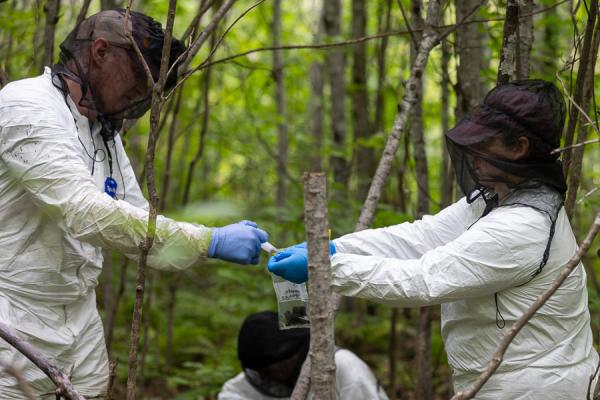Newly funded: Boosting the immune system’s attack on brain tumor cells
March 22, 2021

In the United States, approximately 12,000 patients present with glioblastoma, a very aggressive brain or spinal cord cancer, each year. Glioblastoma has no cure and a median survival period of 15-18 months. Gliomas are very difficult to remove entirely with surgery because of their highly invasive growth and require a second line of attack. Researchers at the University of Minnesota College of Veterinary Medicine have found that using tumor cells in a vaccine boosts the body’s defense and successfully prolongs lifespan in dogs. However, this approach does not prevent eventual regrowth of tumors. Partnering with the University of Colorado and seeking to improve previously tested vaccine therapy efforts, a U of MN research team led by Liz Pluhar, DVM, PhD and Michael Olin, PhD, added another treatment component — a special peptide (a small piece of a protein) that tricks the tumor into granting tumor-killing immune cells entry. Using the newly discovered peptide to treat high-grade gliomas in dogs, which are similar to glioblastoma in humans, the team added the peptide to the vaccine injections after surgery to double both the disease-free and overall survival. The team recently received a $500,000 grant from the V Foundation for Cancer Research to refine the treatment with hopes of even better outcomes. Releasing the peptide over a longer time-period by binding it to a scaffold material that is placed in the brain during surgery, they hope to sustain the immune system’s ability to find and destroy tumor cells. Over a two-year period that started in January 2021, they will test this novel approach in client-owned dogs who present with brain tumors to test efficacy before rolling out the treatment in humans with these devastating brain tumors.
Photo courtesy of Leandro Lucas on Unsplash


